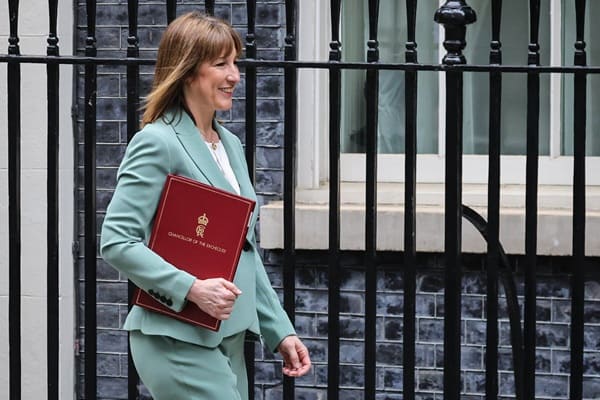Although economic confidence has increased among high net worth individuals (HNWIs) in the UK, according to the latest Saltus Wealth Index Report published today, HNWIs have retained a cautious outlook, with fears over tax reform and inflation continuing to weigh heavily.
The Saltus Wealth Index Report – now in its eighth edition and produced in partnership with Dr Michael Peacey of the University of Bristol – is the benchmark measure of HNWI sentiment in the UK, taking the pulse of 2,000 people with investible assets of £250,000 or more.
The latest Wealth Index now stands at 64.7, reflecting improved confidence since the record low in February this year when it stood at 58.2. Despite this, it still sits well below the high of 67.88 recorded in February 2022.
Today, two thirds (66%) of HNWIs say they are confident in the UK’s economic outlook. While this is a reflection of strong market performance following the Trump tariff trough, today’s confidence levels remain significantly down on the 84% recorded a year ago, after the Labour Government came to power but before its first Budget. One in four (24%) HNWIs cite ‘the economy going into recession’ as their biggest worry, and confidence among older HNWIs remains flat, with only 15% of over 55s holding a positive economic outlook.
Tax concerns dominate ahead of Autumn Budget
With speculation mounting that the Chancellor could target housing, wealth and inheritance tax in November’s Autumn Budget – including rumours of a potential ‘mansion tax’ or stamp duty reform – the latest Wealth Index Report shows that tax remains a top concern for HNWIs.
78% expect tax rises within the next 12 months and almost half (46%) see tax changes as ‘the biggest single risk to their wealth’ – second only to inflation (58%).
Four in ten (40%) say they anticipate higher levels of Income Tax, despite the fact that one in four (24%) believe higher rates of Income Tax are already ‘unreasonably high’ and a key barrier to economic growth. Employers’ National Insurance and reduced pension contribution relief are also expected targets, with 40% saying they think all three could see reforms in the next 12 months.
A majority of respondents also think that Capital Gains Tax will be targeted – either with a rise (46%) or further rate freezes (34%) – and a similar number expect IHT rates to increase (36%) or for the threshold at which it is paid to remain frozen (47%). One in five (17%) say they think IHT is already too high, 30% think it should be abolished and 15% think the threshold should be raised to around £600,000, nearly double the current £325,000.
Protecting and passing on wealth
According to the report’s findings, the vast majority of HNWIs have concerns about the impact of future tax changes and many are already taking steps to mitigate the risk. A third (33%) are considering strategies to protect their pensions from IHT, while 30% are reviewing retirement savings or income in anticipation of legislative reform. More than a third (35%) have made formal pension beneficiary nominations, 34% have set up trusts and 14% have placed conditions on gifts and inheritance.
Mike Stimpson, Partner at wealth management firm Saltus, said: “Confidence in the UK economy is showing a degree of recovery amongst high net worth individuals, up from the lows we saw in January, but this is tempered by concerns over future tax changes and what the Labour Government will do next.
“Whether it’s Capital Gains Tax, Income Tax or Inheritance Tax, HNWIs are braced for further changes at the Autumn Budget given the Chancellor’s limited fiscal room for manoeuvre.
“This cohort are the wealth creators, investors and employers who drive economic growth – if their confidence is undermined by continual uncertainty, that has consequences for everyone.”
Dr Michael Peacey, Senior Lecturer, School of Economics, University of Bristol, added, “Some caution is necessary when considering the increase in the Index to 64.7. The research took place following the strong recovery in markets after the trough of the Trump tariff period and there are plenty of warning signals.
“They are still behind the recent peak of August 2024 (66.9), but have returned to levels last seen in December 2023 (64.4).
“This volatility reflects global and domestic uncertainties over the last year. On the positive side, the UK has seen slight growth in GDP and real wages, a fall in interest rates and the securing of a UK-US trade deal. Yet persistent inflation, geopolitical uncertainty, and the prospect of further tax rises in the November 2025 Budget continue to weigh on sentiment.”





Leave a Comment